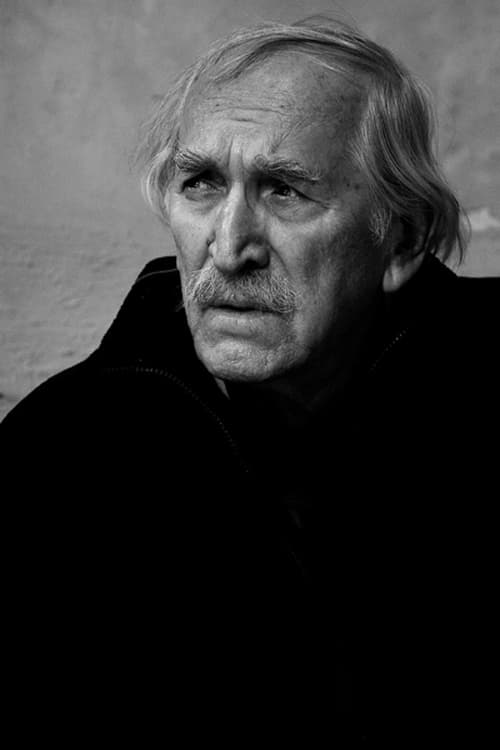Đoko Rosić
Birth : 1932-02-28, Krupanj, Serbia, Yugoslavia
Death : 2014-02-21
History
Bulgarian actor of Serbian descent. Father is Serbian and mother is Bulgarian. Actively starred in Hungarian cinema. At the age of 19 (1951) he emigrated to Bulgaria for political reasons. In 1957 he graduated from the University of National and World Economy in Sofia. For 17 years he worked as a journalist for the Bulgarian National Radio. In 1962 he made his debut in Bulgarian cinema. Since then, he has acted in more than 110 films, mostly in Bulgaria, and since 1975 in films by Hungarian and Yugoslav filmmakers.

Iren's father
We are all a little pieces of the great JIGSAW PUZZLE. And there is only one that fits to other... we look for it and find the same...we try to put it, but... it is the same but not the right one... there left an empty space. Can we rewrite our destiny? Can we overcome the last barrier... death?
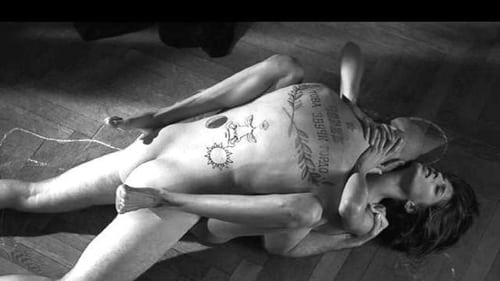
Priest
Moth is freed on parole after spending time in prison on wrongful conviction of murder. Jailed shortly before the Bulgarian communist coup of 1944, he now finds himself in a new and alien world - the totalitarian Sofia of the 60s. His first night of freedom draws the map of a diabolical city full of decaying neighborhoods, gloomy streets and a bizarre parade of characters.

Dezső úr
Some of the most symbolic moments of the 1956 Revolution in Hungary were the tooth-and-nail battles fought by the so-called 'Pest Lads' who dared to defy odds by taking on the panzers of one of the world's superpowers. The story begins on October 23rd, 1956 and ends on November 4th of the same year. Juli is Totya's girlfriend but also loves Gábor. Their love triangle will have to endure the trials and tribulations of these stirring times. A group of boys living in the outskirts of the capital are playing football in abandoned lot when Juli, a ticket inspector, brings news of protests breaking out in the city. Only Gábor accompanies her into town and together they become part of this historical event. At dawn, when the boys too come under fire from Soviet forces, they decide to join in the fight.
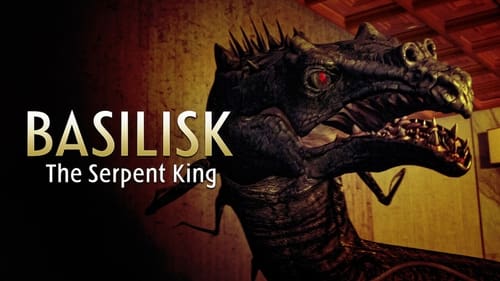
Elder Berber
Two millennia ago, a Lybian king has a basilisk (snake-shaped dragon), which petrifies people, subjected to the same fate with a golden scepter during a solar eclipse. Both these and several victims are dug up by modern archaeologist Harrison 'Harry' McColl's expedition. Despite a cryptic warning from tribal locals, everything goes to his Colorado university's museum. It's all exhibited during another eclipse, which leads to the monster reviving. Harry and some of his friends must try to petrify the monster again.

Кръчмар
This is a story of strange, impossible, inexplicable love between a Muslim Turk woman and a non-Muslim Bulgarian man. Ivan (the Bulgarian) is a pure and romantic young fellow, who gets caught up in the so-called "regeneration process" (when ethnic Turks' names were forcibly changed to Bulgarian ones). He is responsible for the official seals, which is required to issue the new identity documents after the forced name changes. The schoolteacher Ayten tries to steal the seals, thinking that this way she can slow down the ethnic genocide. Their unexpected and unusual meeting brings these two characters together and makes them fell close, forcing Ivan to take a fateful decision -he must either "rename" Ayten, or face the consequences if he does not.

Grandpa
Autumn 1944. Yellow star, ghettos, Arrow Cross terror. The inhabitants of Hungary's capital, Budapest, await the tragic fulfilment of their fate with helpless resignation. However, above one of the city's villas, once a week in the evening the stars of hope sparkle, if only for a few minutes. This short time gives fresh heart to those hiding here and kindles hope in their tortured souls to live for another day. This mysterious power is none other than a beautiful song that can be heard at such times from the villa's tower room.

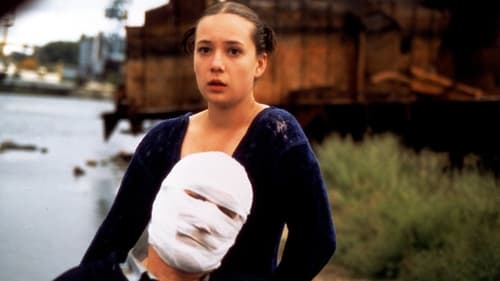
Gustav
Set in a dilapidated indoor swimming pool (the Central Baths in Sofia), the film details the efforts of Anton, a clueless dreamer who yearns to sail the world, and Martha, the button obsessed cashier, to maintain the illusion for Anton's blind father that business is thriving. Working to sabotage their efforts is Gregor - Anton's brother - an amoral developer who is determined to raze the entire town and construct a sprawling condominium complex. Gregor engineers an accident that seems certain to doom the business and in the process steals away Eva, the beautiful woman of Anton's dreams. Will Gregor's dastardly plan succeed?

Two friends (Katerina Didaskalo, Stefan Danalyov) are separated when their village is divided by Communism, but they meet again 40 years later and begin having an affair.

The husband
György Fehèr’s aim was to “make a film which is similar to the last salvaged print of a long lost film”. The passions he investigates are centred on primeval fears and cravings and a sense of inescapable doom. Shot in powerful black and white with excellent central performances.
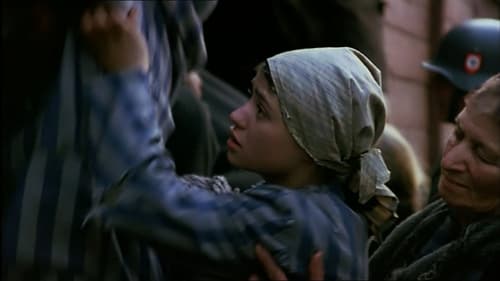
Mr. Daniel
A Jewish boy living in Amsterdam at the onset of WWII is taken to a concentration camp with his parents. Based on the memoir of Holocaust survivor Jona Oberski.

A story about the Macedonian rebellion of 1901.
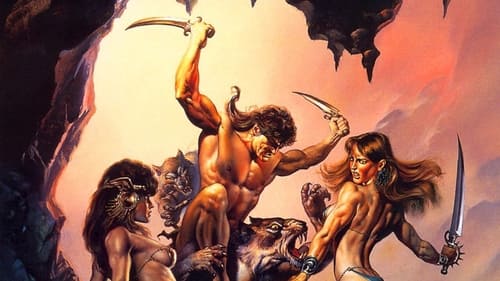
Rakshia
It begins as a contest of strength the challenge of competition luring fighters from far away to a hilltop castle. Deathstalker leads the combatants but only to discover that the winners are disappearing one by one. Now, in his last and greatest battle, Deathstalker must defend his remaining comrades, his life, and his newfound love in battle against an evil army of stone warriors and the wicked queen who created them.

Karahasan
In the 17th century, a Bulgarian Christian region is selected by the Ottoman rulers to serve as an example of conversion to Islam. A Janissary who was kidnapped from the village as a boy is sent to force the reluctant inhabitants to convert. The Turkish governor seeks a peaceful solution, but ultimately torture, violence, and rebellion break out.

Csungi

Stoyo Manchev
In 19th century, a new judge and four of his friends come in Bulgarian town with the knowledge that a golden treasure, once belonging to a Turkish ruler, is buried in the vicinity. But other people are also in search of treasure.

Landolfi
Two adolescents, Sauly and Mick, get to know each other while hitchhiking and stick together for the long haul. They both want to reach the ocean, which is some thousand kilometers away. An old car picks them up, but the trip ends shortly thereafter in a sleazy motel. At the bar, a man named Landolfi approaches them. He explains to Sauly that he must have sold his guardian angel to a man by the name of Miller in the city of Prince. Though the boys do not believe in guardian angels, Sauly slowly succumbs to his own fears. He would like to have his guardian angel back again. On their trip, Sauly becomes sick. Mick works on a farm to pay the doctor's bills. Once Sauly is well, they travel farther - until they reach Prince. In this mysterious city, all of the people are named Miller, and once Sauly and Mick finally are at the ocean, they meet Landolfi once more.

Captain Guzics (as Dzokó Rosic)
When hunting, Zrínyi Miklós finds an Angel with a broken wing. He takes him for a heavenly message and carries him to his castle for cure. Lords and priests come to Zrínyi's court, one after the other, to see Angel. The occasion is appropriate for the ban to win them over to his plan: they should unite their forces to fight for the country's independence.
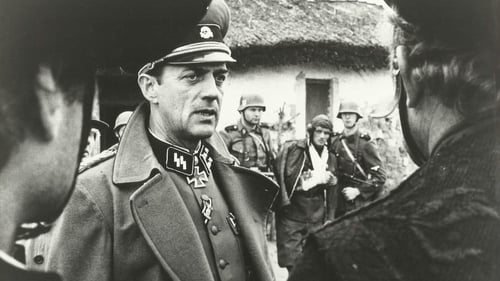
This movie is about the love and protection of a man from another culture for the lowly horsemen of the the plains in Hungary during World War II.

A Hungarian TV version of the play shot in just two takes.
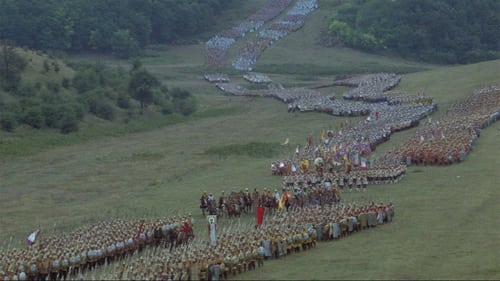
The Icherguboil
The last part of the epic "Khan Asparukh" - "Land Forever" is an impressive finish to scale narrative, created for the nationwide celebration of 13 century anniversary of the Bulgarian state. The authors collected in final chord all storylines, culminating in the political strengthening of the young Bulgarian state. In the center of the film epic again is the image of Khan Asparukh - a lofty romantic hero who embodies the virtues and energy of his people.

The Icherguboil
This is an epic screen presentation showing the creation, the consolidation and the power of First Bulgarian Kingdom and the first Bulgarian ruler Khan Asparuh. The second part of the great historical epic - "The Migration" - tells about the long journey to the land of the Bulgarians of today's Bulgaria. Here the young Khan Asparukh laid the foundations of the new state. The authors adhere to the established historical versions for this event. The film builds on the impressive mass scenes and the convincing served psychological characteristics of the main characters. The image of Asparoukh is a natural center of the story, in which many minor persons recreate the environment of the Khan. Romantic exalted, Asparukh is shown as capable leader of the people, consistently implement his own ideas.
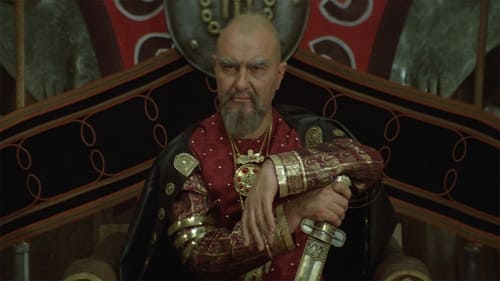
The Icherguboil
This is an epic screen presentation showing the creation, the consolidation and the power of First Bulgarian Kingdom and the first Bulgarian ruler Khan Asparuh. This is the first part of the film trilogy about the events before the creation of the Bulgarian state in the middle of the VII century. Volga Bulgaria is straining under the attacks of the Khazars. Following the testament of his father, the sons of Khan Kubrat looking for a new home for their tribes. The youngest of them - Asparukh, wander 20 years in search of "land forever" for his people and reaches the mouth of the Danube. The film is narrated by captured Byzantine chronicler Belisarius, which should Asparukh in his journeys. Byzantine witnessed the heroic efforts of the Bulgarians to win the land south of the Danube and to create their new country.

In 651, Khan Kubrat died and the Khazars accelerated their raids upon Great Bulgaria. His five sons split the Bulgarian tribe and each led his to find new land where they could live in peace. Khan Asparukh, the youngest son, went west and, after an arduous journey lasting for years, southward across the River Danube, into Moesia. In 680-81, in alliance with the Slavs, he inflicted stunning defeats on the Roman legions and forced the Byzantine Empire to recognize the formation of the new state of Bulgaria in the lands where it still exists today.

Chitanugata
A study in human psychology that uses five disparate characters from clearly defined social positions, this film offers as much insight into the society of a changing Bulgaria, as it does into the minds of individuals in conflict. The story centers around transporting a worker's corpse, in a truck, to the mountain village where he was born. In the truck is: a man who may be suffering from tuberculosis, and who has an unfaithful wife at home; a doctor (the intellectual); a bookkeeper worried over the salaries she pays out; a hermit picked up on the road; and the driver who is a rough-and-ready working-class symbol. The seeds for conflict are set both by the personalities of the five in the truck and by their social background. The director Christo Christov, acknowledges his debt to Henri-Georges Clouzot and the Wages of Fear, for inspiration in the treatment of human conflict, its development through a set storyline, and its resolution in each of the five cases.

1852. Gáspár Noszlopy escapes from prison in order to capture the emperor, who is to visit Hungary, with his companions and force him to sign the Declaration of Independence. He is only able to find four fanatic men, as his one-time soldiers have already accepted the established order as unalterable, each of them having found a satisfactory way of life and unwilling to undertake a suicidal experiment.

Miklós, Barbara férje
Barbara is a forty-year-old woman of Polish origin living in Budapest. She is a biologist, a wife and a mother. The death of her woman friend opens her eyes to the fact that she is lonely, unable to find her place.

Hegyessy
The second in command of a group of highwaymen, the only ones left of Hungary's freedom fighters in the late 17th century, has a wife who really, really wants him to come home and stop gallivanting around the countryside. The only way he can figure to do this is to inform on the group to the authorities in as harmless a manner as possible. Unfortunately, these betrayals cause the group to lose many men, and the traitor grows fearful of the authorities. He gives officials every scrap of information he has in return for a full pardon, and he returns home. His wife, when she hears of these events, is infuriated. Such betrayal is far in excess of anything she can condone, and she kills him. ~ Clarke Fountain, Rovi

Nestor
1876. The Turks murder the parents of the 14-year-old Rali. His only relative is sentenced to life imprisonment in the Asian fortress. Rali walks after the condemned men. After a long and painful road, he reaches the fortress. He finds help from the old man and his daughter. With their assistance, he organizes the escape of the condemned. After numerous adventures the fugitives reaches the motherland. They enlist in a Bulgarian rebel army together with the Russian soldiers of the Russian-Turkish War for the freedom of Bulgaria.

José
A story of Victor Jara - one of the most popular singers in Chile.
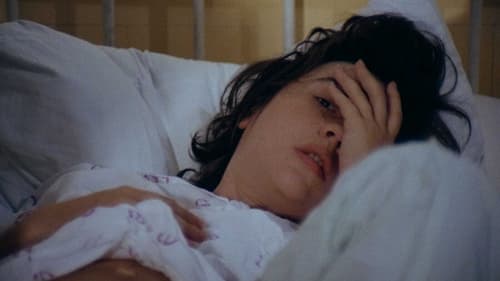
Hajnóczi István, docens (as Dzsoko Roszich)
Village-girl (Juli Kovács) arrives in the city to work in a factory. The works manager (János Bodnár) sets his eye on her, but at first the girl refuses his advance.

Farkos Csapó Gyurka
György Szomjas’s first feature—made after a decade of short documentaries—is a bold attempt at a goulash western, set on the puszta, or Great Hungarian Plain, in 1837. Mixing Miklós Jancsó imagery and a Sergio Leone narrative, this ballad-like saga opens with image of a lone horseman on the empty plain, riding past a rude gallows. The film concerns the vengeful return of a legendary betyár (outlaw), briefly a hero to the local herdsmen who oppose the state building a canal across their grazing land. Although Szomjas works from ethnographic records and archival material, it is hardly surprising that this violent, primitivist film would be more popular with Hungarian audiences than critics. Replete with young guns, crooked sheriffs, tavern brawlers and hardbitten plug-uglies, this widescreen film is strikingly shot by Elémer Ragályi (cinematographer for most of Gyula Gazdag’s films)—a feast of loamy, autumnal colors.

This film, set at the beginning of the 17th century, is the first East-European "Eastern". Bocskai István orders the free Heyducks to shepherd a huge herd of cattle through the country torn to three parts, to the Dalmatian coast, where he can get weapons in exchange, for fighting the Austrians.

the cousin
A former history teacher, currently a house painter is broke before the New Year. Faith meets him with the rich man, who wants his living room to be painted by 4 o'clock for a hefty pay. The father and his six children begin the heavy task with a song. When all is done, the rich man calls that he is going to pay the house painter on the 2nd of January. The father decides to celebrate New Year no matter what.

The year is 1948 and a counter-revolutionary gang is active in the Pirin region. A State Security officer managed to infiltrate the gang. He becomes "one of their own", but isn't in a rush to complete his task.

Kresos Envoy
This film brings us back to show us the life of the famous ancient sage Aesop, who helped people with his wisdom in their struggle for freedom and happiness.

Petar
During World War II, a plane transfers Bulgarian antifascists from the USSR to Bulgaria. They jump with parachutes. The eighth paratrooper heads a guerilla group. In the group, there are doubts about the existence of a traitor. Initially, an innocent person is accused, but later the real traitor is caught and killed. Still, the most dangerous enemies of the guerillas are the colonel and the troops stationed in the nearby village. The battle between them and the guerillas is won by the latter who continue to fight for their cause.

Zlatan
The new supervisor Vasil arrives at the construction site of a dam. Vasil has problems with his men, who mistrust him and reluctantly submit to his perfectionism. He becomes involved with the refreshment bar attendant Lilyana. Vasil, who always wanted children, cannot abandon his childless wife and breaks with Lilyana. When four workers are buried in a tunnel landslide, Vasil makes his way to them and manages to drag them all out, except for Zlatan, a spiteful egocentric, whose legs are caught under a fallen prop. Zlatan begs Vasil to save him, even if it means cutting of his legs. To release the miner's legs Vasil cuts the prop, which is also supporting the roof of the tunnel. Zlatan is rescued. However, Vasil is killed. Since then, the workers say his steps can be heard bellow the dam wall.

Georgi Dochkin

Lord Lennox
